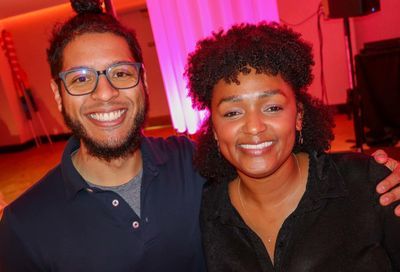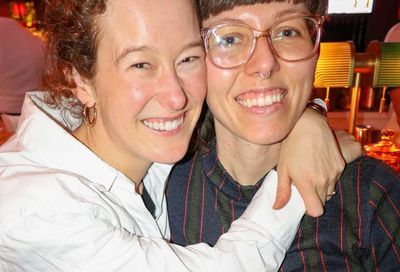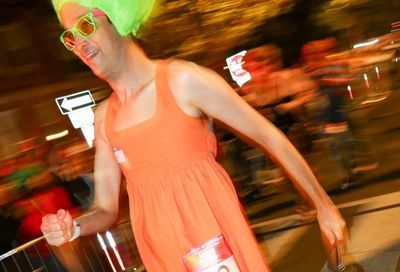What to Do If Your Pet Gets Sick
Animal hospitals and local vets are balancing emergency care with social distancing amid the COVID-19 pandemic

“During this time, when we’re socially distancing due to COVID-19, animals still have health needs, just like we do,” says veterinarian Sarah Bowman, co-owner of CityPaws Animal Hospital in Washington, D.C. “By staying open, we want to be able to provide that care to our patients.
“While normally veterinary professionals — especially here at CityPaws — pride ourselves on face-to-face meetings and in-person discussions with clients, we’ve been forced to adapt,” she continues. “For the safety of our team as well as for our clients, we’ve gone to curbside service. So what we’re doing is more of a ‘handoff’ outside the hospital.”
For instance, if a pet gets severely sick — say, from eating something that causes gastrointestinal distress — owners are encouraged to pull up outside the hospital and call the front desk, who will transfer the call to the vet and their assistants. An assistant will take down all relevant medical history, and then come to the car to bring the pet inside. The vet will then examine the pet and call the client, communicating via speakerphone while the exam is underway.
“We do the exam and discuss what’s happening with the patient, what their needs are, and any medical recommendations,” says Bowman. “So we are still able to provide the same level of care. It’s just that our communications are more via phone versus face-to-face. That way we’re able to keep our team safe so we can stay open for business by minimizing [human] interactions for our team.”
In worst-case scenarios, where older or sicker pets need to be euthanized, CityPaws will allow owners in the building, but will take extra precautions to avoid opportunities for transmission of COVID-19 between humans.
“It’s hard because we completely understand the sadness of that situation and how upsetting it is for people,” Bowman says. “We also want to be respectful of end-of-life scenarios. So that is the one exception to our rule of no clients in the building, because we recognize that that’s not something anybody would want their animal to go through on their own if they didn’t have to.”
CityPaws isn’t the only hospital practicing social distancing and offering “curbside service.” Christine Klippen, an emergency veterinarian at the Friendship Hospital for Animals in Washington’s Tenleytown neighborhood, says that their management team has taken steps to limit human-to-human contact in the midst of the COVID-19 pandemic, even as they remain open 24 hours a day.
“We are encouraging owners to call the hospital first, or email or use our live chat options, to determine if their pet needs to be seen, either as a sick appointment versus a true emergency,” Klippen says. “There is a lot of talking to owners on the phone and getting their history if we are scheduling appointments.”
On Monday, Friendship decided to shut down its general surgery services in order to focus on more serious or life-threatening illnesses, and to conserve personal protective equipment used by staff. Elective procedures, including neuters, spays, and routine dental visits, have been postponed for the time being.
“Inside the hospital, we are attempting our very best to practice social distancing ourselves,” adds Klippen. “We are thoroughly cleaning the hospital, and spreading out into areas that may not have been used for medical purposes in the past. Our lunch room has turned into a workspace area for doctors and veterinary support staff so that we can type up our records, answer the phone, and keep ourselves safe.”
Even JD Warford, owner and sole practitioner at DC MetroVet, which provides house call vet services for dogs and cats, has been forced to cut back on routine visits.
“Since we’re strictly a house call practice, we’re a little different than a lot of clinics,” Warford says. “With the cutback, we’re trying to have people hold off on routine visits, although some pets do need vaccine updates because of requirements based on where the owners live, so we’re trying to work with that. We’re doing more phone consults and video conferencing and we’ll be offering that more over the next few months to our existing clients.
“Mostly we’re limiting our visits for in-home pets that are sick,” Watford says. “If they’re urgently sick, we’re requiring that they go or contact their local clinics. And we do a lot of in-home palliative care consults and euthanasias for old, sick pets or pets that are dying from some sort of illness. We want to make sure we can maintain that.”
If a person is sick or has been in the past 14 days — whether or not from COVID-19 — Warford is not scheduling any in-house appointments.
“We’re doing a lot of our intake questions ahead of time by phone or email so we can show up, do exactly what we need to do with the pet, with the owner at a required distance away. And then, what I do is contact them by phone or email, after we leave, to follow up with what we need to do next.”
All three vets note that while dogs and cats can suffer from their own form of coronavirus, based on testing done by the veterinary lab IDEXX, there hasn’t been any evidence showing that pets are contracting COVID-19-related illnesses. That said, Klippen notes, various health organizations are advising those who have tested positive for COVID-19 to avoid close contact with their pets, because their fur could act as a surface that could carry the germs.
With people lodged in place due to the recent’s recent executive “stay at home” orders, owners may notice a change in their pet’s lifestyle, such as changes in appetite, drinking, or behavior. But that doesn’t necessarily mean their pet is ill.
“Pets may be a little confused because they are very routine-oriented, and when we change that up, it can cause some anxiety,” says Warford. “Probably more than anything what this social distancing is doing is allowing pet owners to be home more with their pets, and they start to notice more things.”
“If people are not clear on, ‘Hey, should I bring my pet in? Does this sound like a medical issue that needs to be seen or not?’, they should contact their veterinarian,” says Bowman. “Or they could contact our veterinary technicians for what we call a ‘tech triage,’ where they have a conversation with a client and decide if there is something simple that you could do at home for the next 12 hours where it doesn’t require you to come running in the door, or if this is an issue where we would recommend an appointment. That’s always a good resource for people.”
CityPaws Animal Hospital has two locations, at 1823 14th St. NW, and at 3513 Connecticut Ave. NW, inside Sam’s Park & Shop. For more information, visit www.citypawsanimalhospital.com.
Friendship Animal Hospital is located at 4105 Brandywine St. NW. For more information, visit www.friendshiphospital.com.
For more information on DC MetroVet, visit www.dcmetrovet.com.
Support Metro Weekly’s Journalism
These are challenging times for news organizations. And yet it’s crucial we stay active and provide vital resources and information to both our local readers and the world. So won’t you please take a moment and consider supporting Metro Weekly with a membership? For as little as $5 a month, you can help ensure Metro Weekly magazine and MetroWeekly.com remain free, viable resources as we provide the best, most diverse, culturally-resonant LGBTQ coverage in both the D.C. region and around the world. Memberships come with exclusive perks and discounts, your own personal digital delivery of each week’s magazine (and an archive), access to our Member's Lounge when it launches this fall, and exclusive members-only items like Metro Weekly Membership Mugs and Tote Bags! Check out all our membership levels here and please join us today!






















You must be logged in to post a comment.